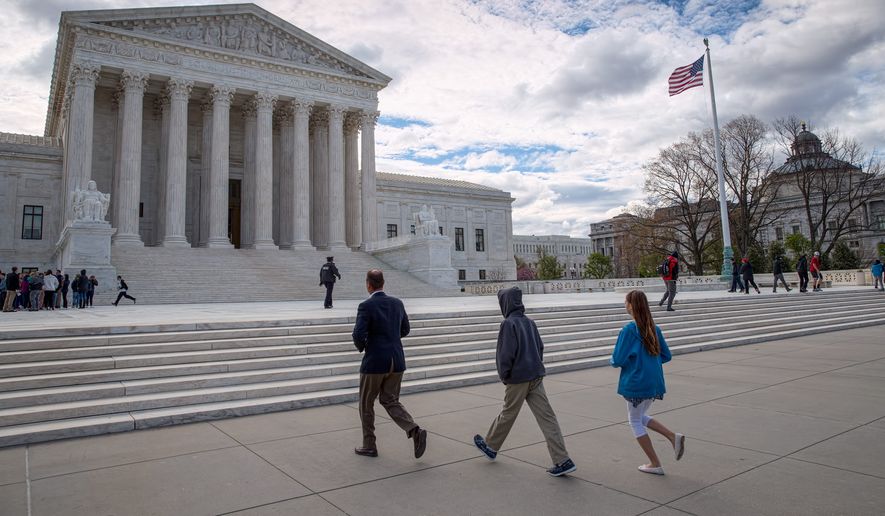The Supreme Court isn’t infallible.
The justices announced Tuesday that they had erroneously tried to disbar a Boston lawyer based on a case of “mistaken identity,” confusing him for a Vermont lawyer with a similar name.
The court had moved to punish Christopher Patrick Sullivan, the incoming president of the Massachusetts Bar Association. The person they thought they were punishing was Christopher Paul Sullivan, a lawyer now sitting in prison for the 2013 drunken-driving slaying of a 71-year-old woman.
Amy Howe, a Supreme Court expert and SCOTUSblog writer, said this is “quite rare.”
“The Supreme Court does not normally do its own attorney discipline; these suspensions and expulsions from the Supreme Court bar generally rest on a lawyer being suspended or expelled from the state bar to which he belongs,” Ms. Howe said in an email to The Washington Times.
In this case, the New York Bar notified the Supreme Court that it had ousted a Christopher P. Sullivan.
The high court searched its records and found a lawyer with that name on its own bar lists. On May 15 the justices took action.
“Christopher Patrick Sullivan, of Boston, Massachusetts, is suspended from the practice of law in this Court,” they said, and gave him 40 days to prove why he shouldn’t be outright disbarred.
Mr. Sullivan’s firm, Robins Kaplan LLP, contacted the clerk’s office to tell them they had the wrong guy.
“The Clerk’s Office was then able to confirm that the Christopher P. Sullivan who was disbarred in New York is a different person from the individual who was the subject of the show cause order, and that the Mr. Sullivan who was disbarred in New York is not a member of the Supreme Court Bar,” said Kathleen Arberg, the court’s public information officer. “As a result, the court issued the order today discharging the earlier order.”
That led to Tuesday’s mea culpa: “Due to mistaken identity, the order suspending Christopher Patrick Sullivan of Boston, Massachusetts from the practice of law in this Court, dated May 15, 2017, is vacated and the Rule to Show Cause issued on that date is discharged.”
Anthony Froio, managing partner at the Boston firm, said they quickly spotted the error and were able to patch things up.
“Chris was surprised to have heard about this,” Mr. Froio told The Times.
He said he called the court and “they couldn’t have been more swift” in realizing the error.
The other Sullivan, the felon, was originally sentenced to four to 10 years in prison, but the Vermont Supreme Court ordered a new sentencing hearing for him last month. The court said he wasn’t given enough time to adequately prepare for his sentencing hearing, the Vermont Digger reported.
• Alex Swoyer can be reached at aswoyer@washingtontimes.com.




Please read our comment policy before commenting.